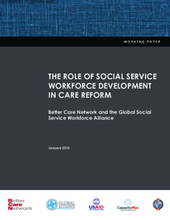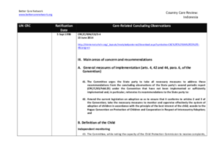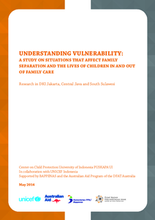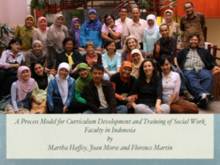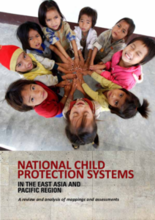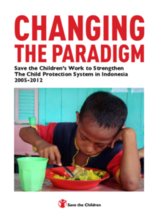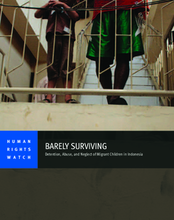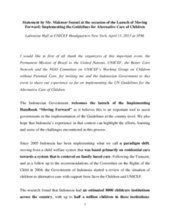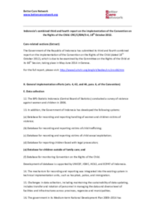demographic_data
childrens_living_arrangement
children_living_without_bio
adoption
social_work_force
key_stakeholders
Key Stakeholders
Add New DataOther Relevant Reforms
Add New Datadrivers_of_institutionalisation
Drivers of Institutionaliziation
Add New Datakey_research_and_information
Key Data Sources
Add New DataDisplaying 81 - 90 of 109
This working paper, produced by the Better Care Network and the Global Social Service Workforce Alliance, explores the topic of social service workforce strengthening as it relates to child care reform.
Chemy “Samuel” Watulingas, owner of an orphanage in the Gading Serpong housing complex in Tangerang, Banten, Indonesia, was found guilty of sexually abusing several children in the orphanage and has been sentenced to 10 years in prison.
This country care review includes the care related Concluding Observations adopted by the Committee on the Rights of the Child as part of its examination of the third and fourth periodic reports of Indonesia (CRC/C/IND/CO/3-4) during its 65th Session at its 1890th and 1891st meetings held on 5 June 2014, and adopted, at its 1901st meeting, held on 13 June 2014.
This report presents analysis and key findings from a study aimed at fully understanding the situations of children in Indonesia that may lead to family separation.
This presentation, given at the Social Service Workforce and the Practice of Working with Vulnerable Children and Families Symposium, provides an overview of a child welfare curriculum development and training project for social work faculty in Indonesia.
This report presents the findings of a mappings and assessments review of child protection systems in 14 countries including Cambodia.
This report documents the work conducted by Save the Children in collaboration with the Indonesian Ministry of Social Affairs over a period of 7 years to strengthen the national child protection system and change the underlying paradigm for that system away from over-reliance on residential care and towards child and family centered responses.
While many migrants and asylum-seeking children may try to reach Australia, they often spend months or years caught in Indonesia.
Statement by Mr. Makmur Sunusi, Senior Advisor to the Minister of Social Welfare of Indonesia on the occasion of the launch of the handbook ‘Moving Forward: Implementing the ‘Guidelines for the Alternative Care of Children’ at UNICEF House in New York on the 11th April 2013.
Care related section of the Government of the Republic of Indonesia's third and fourth combined report on the implementation of the Convention on the Rights of the Child (dated 18th October 2012).

